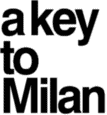







|
|
|
STAZIONE CENTRALE
AND CENTRO DIREZIONALE
This is a commercial area full of transport
terminals and hotels, which developed around the railway in the
second half of the 19th century, and was a prominent target of
urban restructuring projects during the Fascist period. The third
(yellow) line of the subway runs under its main traffic artery.
At a short distance from the Stazione, the Centro Direzionale
(subway Gioia) is a complex of public and private business and
administrative offices built in the 50s and 60s around Via Melchiorre
Gioia. The Centro Direzionale was conceived as an alternative
to the old center, but it has certainly not yet supplanted its
administrative role.
STAZIONE CENTRALE
Piazza Duca d'Aosta
 |
Centrale FS
|
Enormous, abundantly faced in heavy stone,
Milan's main railway station was built in a megalithic
early 20th century style which is ironically described as `Assyro-Milanese'.
The Stazione Centrale is looked upon with affection by the Milanese,
and is inhabited by the special breed of night dwellers who are
to be found in railway stations the whole world over. It was born
old, since its 1912 design project was finally completed only
in 1931. If you decide to visit it as a historic site and not
just as a place to catch a train, look upward; there are interesting
decorations on the ceiling, and unusual vertical spatialstructures.
|
|


|
|
PIRELLI SKYSCRAPER
Piazza Duca d'Aosta
 |
Centrale FS
|
In front of the Stazione Centrale is one
of the world's highest concrete skyscrapers, the Pirelli building
(127 meters), designed in 1955-60 by Gio Ponti, with a concrete
structure by Pier Luigi Nervi.
Close to the Pirelli, at the corner of
Via Galvani and Via Fabio Filzi, is a school building (1888-89)
designed by Camillo Boito, who was both an architect and a writer.
Boito's novel Senso inspired a film (bearing the same title)
by Luchino Visconti.
Milan's original main station was a little closer to the center
than the present Stazione Centrale; it had been built in 1864
on the site of today's Piazza Repubblica, and its tracks
ran through the town along Viale Tunisia.
The neighboring areas were, for the most part, rebuilt after 1931,
when the old station was demolished. In this section of town you
can therefore see some buildings which testify to the avant-garde
role played by some of Milan's architects in the 20s and 30s.
The house at the corner of Piazza Repubblica and Viale Monte Santo
was designed by Giovanni Muzio (1935-37). Casa Feltrinelli
at Via Manin 37 is by Lodovico Belgiojoso (1934-35). Between Via
Moscova and Via Cavalieri stands the famous "Ca' Brutta"
(`Ugly House', 1919-23) by Giovanni Muzio. Also in this area (at
Via Moscova 3, and in Largo Donegani) are the elegant Montecatini
former office buildings (by Gio Ponti, 1938-51).
|
|
|
|
All rights reserved
copyright © 1996-2001
Monica Levy, Roberto Peretta
copyright © 1996-2001
Ulrico Hoepli SpA, Milano

[Want to purchase
the guidebook ?]
[Instructions on how
to do it]
|
|
|
|